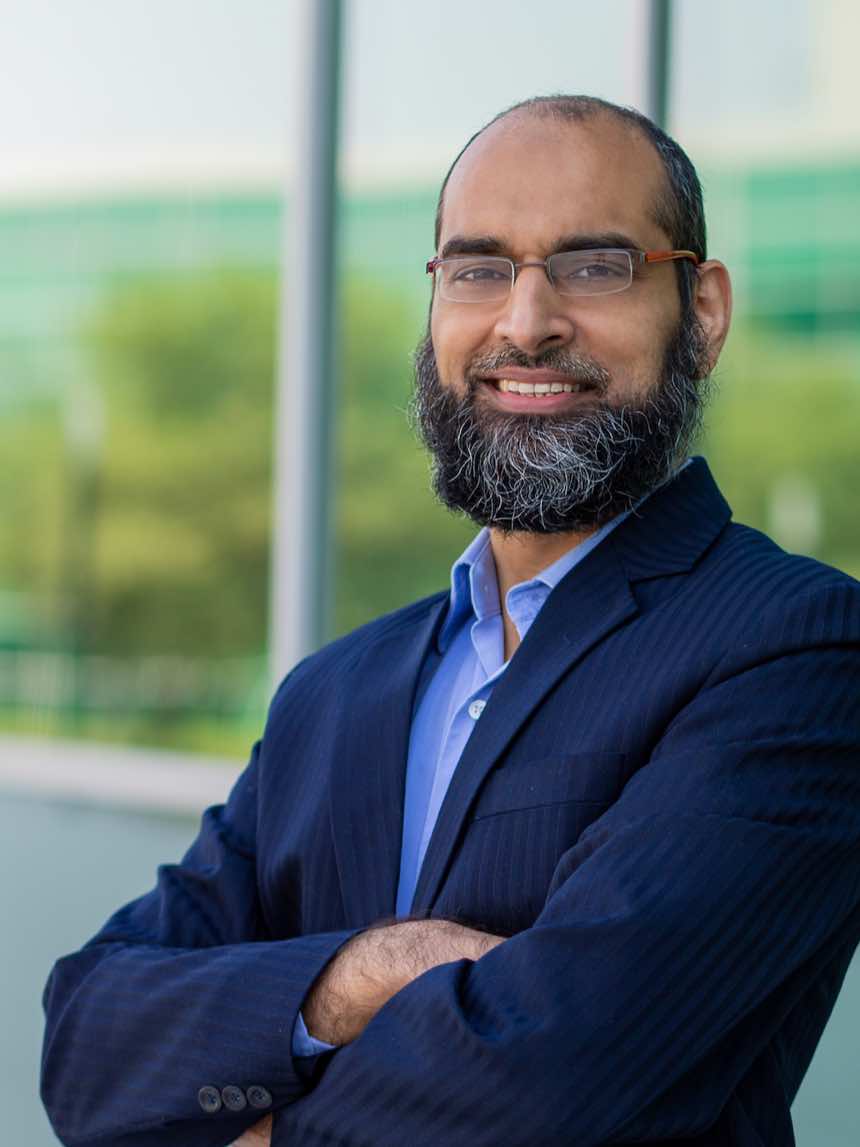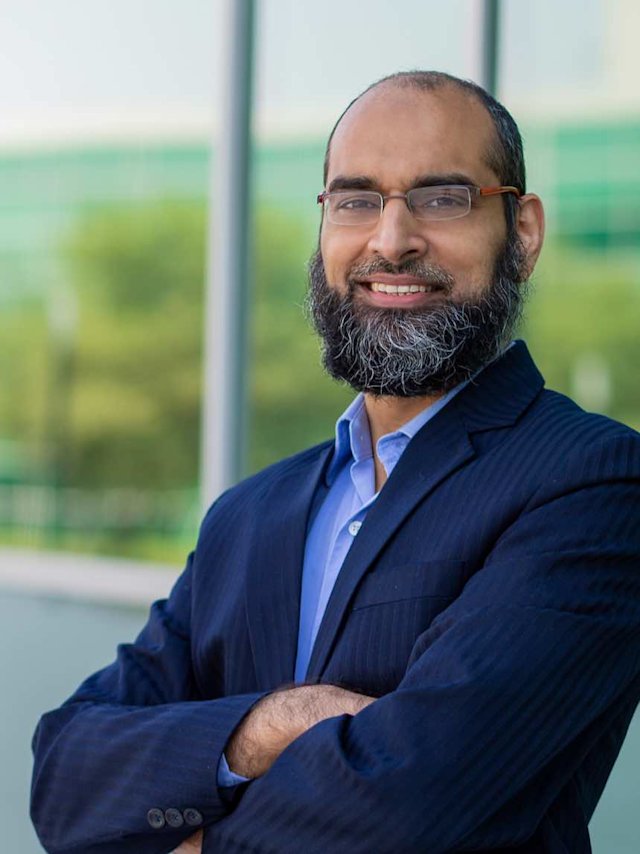Coronavirus (COVID-19) Updates
For the latest COVID-19 information and updates from Qatar Foundation, please visit our Statements page

Dr. Faisal Farooq, from HBKU’s QCRI, pointed out that artificial intelligence will change many aspects of healthcare as the role of doctors and healthcare providers continue to evolve
The increasing use of artificial intelligence (AI) technologies in healthcare presents benefits as well as challenges for governments and healthcare providers, according to Dr. Faisal Farooq, Principal Scientist and Head of Digital Health Research at Qatar Computing Research Institute (QCRI), part of Hamad Bin Khalifa University (HBKU), a Qatar Foundation member.


Artificial Intelligence (AI) is playing an increasingly important role in healthcare
“Artificial Intelligence (AI) is playing an increasingly important role in healthcare. AI is getting more mature, as the technology becomes more mature, as well as more data becomes available,” says Dr. Farooq.
“The availability of healthcare data greatly helps in using AI in three main areas: diagnosis, treatments and research. In addition to that it is also used in some financial aspects of healthcare, for example, hospital management, and insurance writing.”
Dr. Farooq indicated that the use of AI will become more important in the future, and so, we must pay attention to two important aspects. “We must know the reasons for doctors' hesitation and lack of confidence in the results of AI technologies; and the extent of our ability to apply and support AI technologies in health systems.”
What must be realized is that AI technologies do not make decisions, but in fact make recommendations
He adds: “What must be realized is that AI technologies do not make decisions, but in fact make recommendations, and then the decision is made by the doctor and the patient together. Despite the progress and importance of AI, they will not replace doctors.”

Image source: DANIEL BECERRIL, via Reuters
There was a lot of work that doctors would do manually, and now this is done by technology, but this does not mean that doctors aren’t needed anymore. Dr. Farooq emphasized that doctors must be ready to use this type of technology, and not hesitate to use them. “As we know that AI will change many aspects of healthcare, the role of doctors may change, too.”
Medicine is still taught in the same way 20 years ago but things have changed now
Dr. Farooq explained that there are other challenges that may come up with the rise of AI, including the methods of education provided in the healthcare sector. “Medicine is still taught in the same way 20 years ago, but things have changed now, and therefore, the education system and the way doctors and all health service providers are educated must change, to be able to include new AI technologies and algorithms in their work.
Although Dr. Farooq notes that AI can sometimes make wrong recommendations, this, in his opinion, is not a problem, because doctors often give wrong recommendations due to the lack of data, or they may not know the patient's medical history, but the problem lies in what may happen after the recommendation is made.
Image source: Mark Stone/University of Washing, via Reuters
“Although AI algorithms may provide sufficient information to the healthcare provider and the patient, they will probably be missing some aspects that the doctor can treat. For example, there may be a unique disease condition, and therefore the AI system may not be able to give recommendations. This is where the role of the doctor comes in.”
Qatar Foundation has invested heavily in the field of AI, especially through the Qatar Genome Programme and Qatar Biobank, and is keen to share this data with researchers in the field of AI to be able to provide new types of healthcare outcomes, either for diagnosis or treatment, Dr. Farooq said.
“We also have at HBKU, a center dedicated to AI research, and we have entered into a partnership with all healthcare institutions, such as the Ministry of Public Health, the National Cancer Center, and Hamad Medical Corporation, to have an integrated system that collects and shares data while maintaining patient safety and privacy,” he said.

